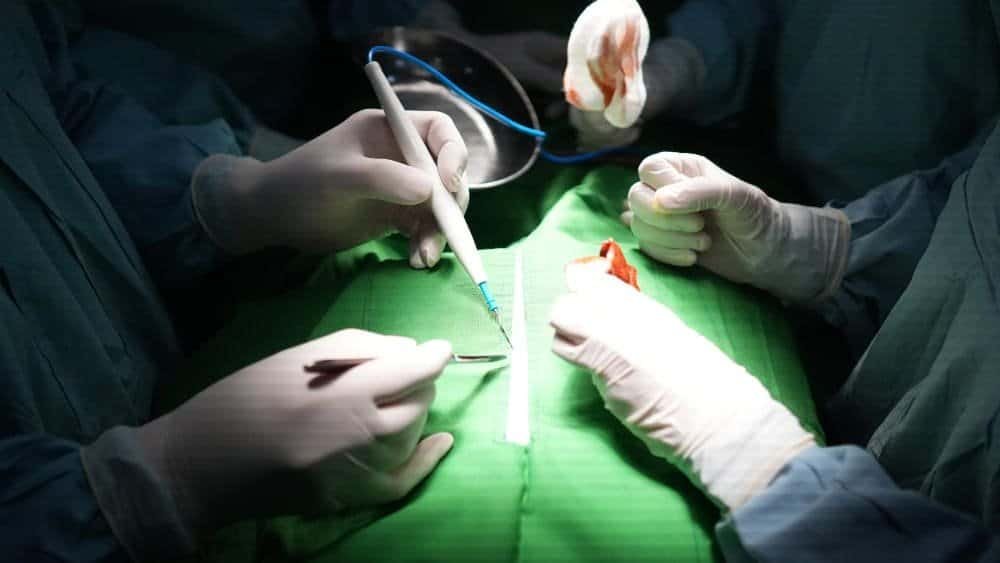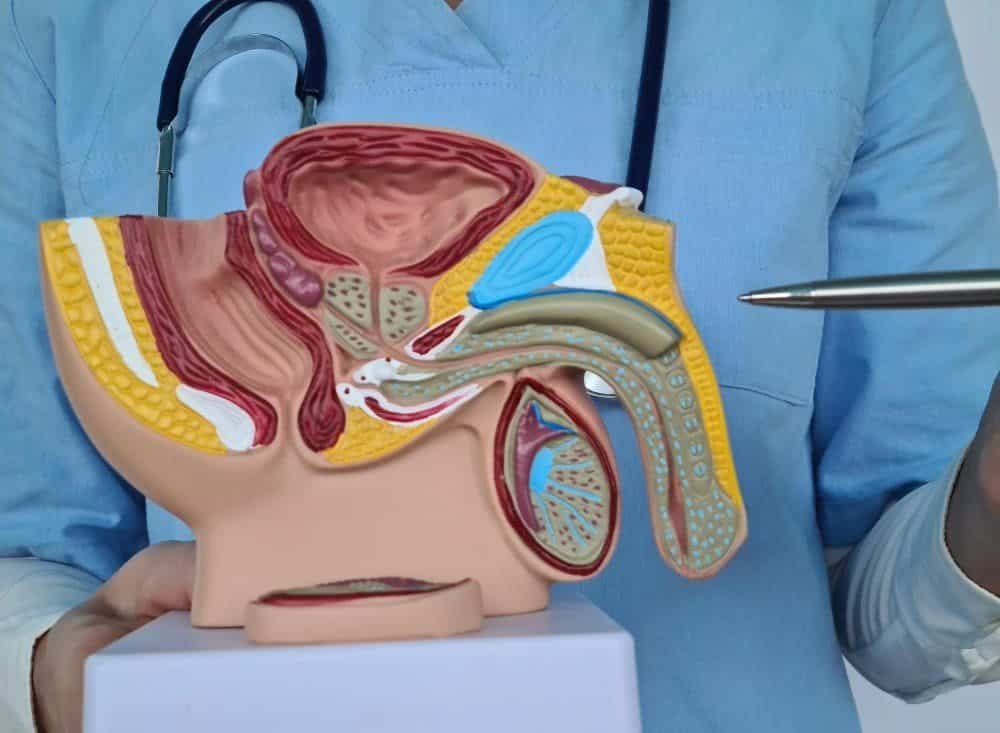Varicocele surgery is often performed to improve fertility or reduce pain, but like any procedure, it carries potential risks and complications. Understanding the Long-Term Side Effects of Varicocele Surgery helps patients make safer treatment choices.
What Is Varicocele Surgery?
A varicocele is an enlargement of veins within the scrotum, often on the left testicle, and is a common cause of male infertility. When untreated, varicoceles may lead to sperm quality issues, decreased testosterone, and testicular discomfort.
Varicocele surgery, or varicocelectomy, is a procedure designed to repair the affected veins and improve testicular function. Techniques include:
- Microsurgical subinguinal repair
- Open surgery with an incision
- Laparoscopic approaches
- Catheter-based embolization (minimally invasive and recommended by interventional radiologists like Dr. Samir Abdel Ghaffar 🩺).
Why Is Surgery Done?
The most common reasons patients undergo varicocele repair include:
- Persistent testicular pain or discomfort.
- Infertility, caused by poor sperm production or abnormal quality.
- Visible swelling or enlargement of the scrotum.
- Prevention of testicular atrophy (shrinkage).
💡 Data show that while surgery can improve sperm parameters in many men, it is not without risks and potential long-term effects.
Common Complications of Varicocele Surgery ⚠️
Like any operation, complications of varicocele may occur:
- Scrotal swelling or bruising.
- Infection at the incision site.
- Hematoma formation due to blood buildup.
- Temporary shoulder tip pain (rare but reported in laparoscopic procedures).
- Mild numbness in the groin or scrotal skin.
Most of these effects are temporary and resolve during recovery. However, some long-term side effects may persist.
Long-Term Side Effects of Varicocele Surgery
1. Persistent Scrotal Pain
Some patients experience persistent scrotal pain after surgery, often dull or aching in nature.
- It may occur due to nerve irritation, scar tissue, or abnormal blood vessel healing.
- In rare cases, chronic pain can last for weeks or months, affecting quality of life.
2. Recurrent Varicocele
Recurrence is a significant concern after varicocele surgery.
- Recurrent varicocele occurs when the repaired veins fail to close completely or new abnormal vessels develop.
- Recurrence rates vary depending on technique: microsurgical repair has the lowest recurrence, while open or laparoscopic surgery may show higher rates.
- This recurrence can lead to infertility issues reappearing.
3. Hydrocele Formation (Fluid Around Testicle)
One of the most frequent long-term complications is the hydrocele, a fluid-filled sac surrounding the testicle.
- Hydrocele formation occurs due to the disruption of lymphatic drainage during surgery.
- It leads to visible swelling in the scrotum, sometimes requiring another procedure for correction.
4. Impact on Fertility and Sperm Production
While many men see improvements in fertility after varicocele repair, others may notice no change or even decreased sperm quality.
- Some studies suggest the effects of varicocele repair on fertility vary widely among patients.
- Factors such as age, baseline sperm count, and surgical technique all influence outcomes.
5. Testicular Atrophy or Damage (Rare)
In very rare cases, surgery may cause damage to the testicular artery, leading to atrophy (shrinkage) of the testis.
- This complication is uncommon but serious.
- It highlights the importance of microsurgical techniques to preserve delicate blood vessels.
6. Sexual and Hormonal Effects
- Some men worry about the impact on testosterone after surgery.
- Generally, levels stabilize or even improve post-repair.
- However, in rare cases, long-term hormonal imbalance may occur if testicular function is impaired.
- Sexual functions are usually unaffected, but prolonged discomfort can indirectly affect the relationship and confidence in intimacy. 🙂
Risks of a Varicocelectomy: What Data Show
- Studies report that risks of a varicocelectomy include bleeding, infection, recurrence, and hydrocele.
- Data show recurrence rates range from 1% in microsurgical approaches to 15% in older open procedures.
- Chronic pain occurs in a small percentage of patients, while fertility improvement varies from patient to patient.
Possible Side Effects of This Procedure
The possible side effects of this procedure are influenced by the technique used:
- Microsurgical varicocelectomy → remarkably low complication rates.
- Laparoscopic surgery → higher chance of recurrence and fluid buildup.
- Embolization (catheter technique) → minimally invasive, reduced pain, faster recovery.
✔️ Each technique has pros and cons, but minimally invasive options are increasingly preferred.
Safer Alternatives: Varicocele Embolization 💡
Varicocele embolization is a modern treatment performed by an interventional :
- No incision in the scrotum.
- A thin catheter tube is inserted into a vein.
- Coils or agents are placed to block abnormal vessels.
- Recovery is quick, often just a day or two.
Benefits include:
- Lower risk of hydrocele.
- Minimal scarring.
- Reduced chances of recurrence.
- Less discomfort and quicker return to physical activity.
Dr. Samir Abdel Ghaffar specializes in this technique, offering patients a safer option compared to traditional surgery.
Post-Surgery Care and Recovery ✔️
Patients should:
- Wear scrotal support to reduce swelling.
- Avoid heavy physical exertion for at least 2–4 weeks.
- Watch for symptoms like persistent pain, enlargement, or infection.
- Follow up with the doctor for regular monitoring.
💡 Good post-care significantly reduces the risk of long-term complications.
❓ FAQs on Varicocele Surgery
1. How safe is varicocele surgery?
Varicocele surgery is generally safe, especially when performed using microsurgical subinguinal techniques or embolization. Most patients recover well with minimal risks. However, like any procedure, there are possible complications of varicocele repair, such as hydrocele, infection, bleeding, or recurrent varicocele. Data show microsurgery and embolization have the lowest complication rates.
2. What to avoid after varicocelectomy?
After a varicocelectomy, patients should avoid:
- Heavy lifting or strenuous physical exertion for at least 2–4 weeks.
- Standing for long periods during the early recovery phase.
- Sexual activity until cleared by the doctor.
- Ignoring symptoms such as persistent scrotal pain or swelling.
Following post-surgery care helps reduce risks and improve healing.
3. Can I do the gym after varicocele surgery?
Light activities such as walking can start a few days after surgery, but going to the gym or resuming weight training should be postponed for at least 3–4 weeks. Intense exercises, especially those involving the groin or abdominal area, can increase pressure on the veins, slow recovery, and raise the risk of recurrence. Always check with your doctor before returning to full workouts. 💡
4. What is the incision for varicocele surgery?
The incision for varicocele surgery depends on the technique:
- Microsurgical subinguinal approach: a small incision just above the scrotum.
- Inguinal or retroperitoneal repair: higher up near the groin.
- Laparoscopic surgery: tiny incisions in the abdomen for inserting instruments.
- Embolization: no scrotal incision at all, just a small puncture for the catheter.
The choice of incision affects recovery time, risks, and long-term side effects.
Conclusion 🙂
Varicocele surgery can improve fertility and reduce discomfort, but it is not without potential long-term side effects. Risks such as persistent scrotal pain, recurrent varicocele, hydrocele formation, or testicular damage must be considered.
⚠️ Choosing the right treatment and technique makes a big difference. Microsurgical repair and embolization offer remarkably better safety profiles with lower complication rates.
If you’re considering varicocele repair, consult with a specialist like Dr. Samir Abdel Ghaffar, who provides advanced catheter-based treatments that improve outcomes and reduce risks.
 العربية
العربية 

